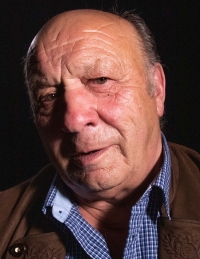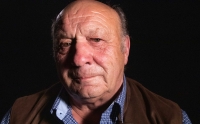If someone’s already lying on the ground, you don’t step on them

Stáhnout obrázek
Rudolf Paulik was born on 13 January 1938 in Horní Vltavice to a German family from the “Kunische Bauern” tradition, who were free peasants directly beholden to the king. His father’s mother was from Husinec and Czech, but she died before the end of the war. The family owned the extensive Paulikenhof farmstead. At the time of Rudolf’s birth, his father enlisted in the Czechoslovak Army, later fighting in the Wehrmacht and taken as a prisoner of war by the Soviets. His mother was from a miller’s family and throughout the war she managed the farm on her own, also operating a grocery store in Horní Vltavice. He says his childhood in Šumava was a time without conflict. Concerning post-war events, his recollections are of the cruel treatment of the soldiers, who forced the German population to kiss the body of a dead Jewish girl in the square in Horní Vltavice. On 24 May 1945 the family was transferred to a concentration camp and a few days later transported via Cheb to Germany. Rudolf Paulik trained in Regensburg, becoming the master of a workshop and in 1959 he enlisted in Nuremberg as one of the first members of the Bundeswehr. He is the father of four children who he raised from infancy on his own. He returned to Bohemia for the first time in 1966, meeting “undeported” friends in Horní Vltavice. Despite contributing to the foundation of several Czech-German partnerships and having “Czech blood in his veins”, he is unable to forget or forgive the behaviour of the Czech people after the war.

